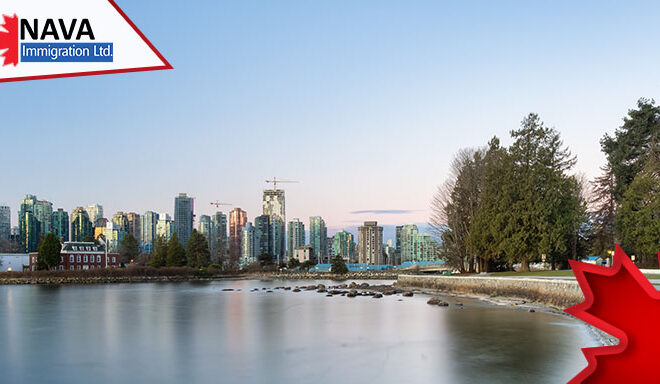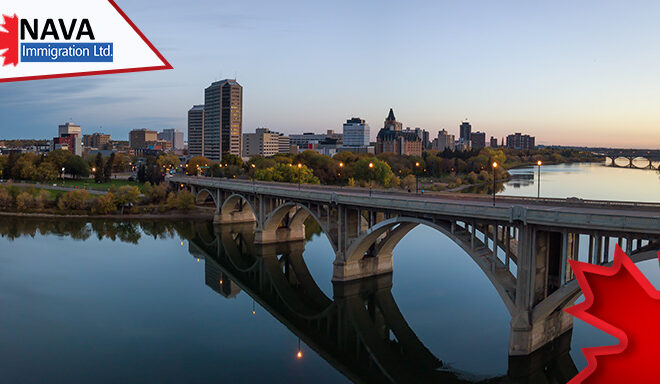The Major Changes To Canadian Permanent Resident Pathways
This year, Canada launched several new pathways to permanent residence. Here are the major changes to Canadian permanent resident pathways.
The table below demonstrates these updates for a clearer overview.
| Pathway | Whom Is It For | Summary Of Major Changes | Date Of Launch |
| Francophone Minority Communities Student Pilot | French-speakers from selected countries who graduate from selected DLIs. | New program | August 26, 2024 |
| Welcoming Francophone Communities Initiative | French-speakers wishing to settle in selected communities outside Quebec. | Ten new communities have been added | Details to be declared |
| Alberta Law Enforcement Pathway | Those with job offers in law enforcement in Alberta. | New pathway | June 25, 2024 |
| Quebec’s Skilled Worker Selection Program | Skilled workers who wish to settle in Quebec. | Replacement pathway for the Regular Skilled Worker Program. Paused until June 30, 2025 | To begin issuing ITAs June 30, 2025 |
| In-Canada Focus Category | Express Entry applicants with temporary resident status in Canada. | New category | October 24, 2024 |
| PEQ Graduates Stream | International students who graduate from DLIs in Quebec. | Addition of French requirement. Suspension until June 30, 2025 | October 31, 2024 |
| Federal Economic Priorities (Express Entry) | Express Entry applicants. | Focus on healthcare, skilled trades, and French | Details to be declared |
| BC’s Entrepreneur Immigration Regional Pilot | Eligible newcomers looking to begin businesses within the province and settle there permanently. | The pilot became permanent. It is now called Entrepreneur Immigration Regional Stream. | June 21, 2024 |
Francophone Minority Communities Support Pilot
There are some major changes to Canadian permanent resident pathways. The first program is the Francophone Minority Communities Support Pilot.
FMCSP was launched on August 26, 2024, as a flagship measure of the polity on Francophone Immigration.
This program aims to attract and retain French-speaking international students who wish to settle in Canada permanently by offering graduates a direct pathway from temporary resident status.
Pilot program participants will also benefit from access to settlement services while they are studying.
Details and Eligibility:
In order to be eligible, participants need to meet the following criteria:
- Be a citizen of an eligible country.
- Have a letter of acceptance from a participating designated learning institution (DLI) that says they’re applying under the FMCSP.
- Be enrolled in a study program that meets the requirements of the pilot.
- Have enough money to pay for tuition fees and living expenses for themselves and family members who come with them to Canada.
- Live outside Canada when they apply.
- Get a medical exam (if required).
- Get a police certificate (if required).
- Score a level 5 or higher in all abilities in the Niveaux de compétence linguistique canadiens (NCLC) scale.
Depending on where they are applying from, they might need to provide other documents as well.
Welcoming Francophone Communities Initiative
Earlier this year, IRCC declared that it would be expanding its Francophone Community Initiative.
The initiative supports the immigration of French-speaking newcomers to specific francophone and Acadian communities outside Quebec.
Prior to its expansion, this initiative included 14 francophone and Acadian communities. IRCC expanded the program to include 10 more communities across six provinces in August 2024.
Under this initiative, these communities are given funding by IRCC to offer settlement plans and services such as language training and employment advice and arrange community events to help newcomers integrate into the communities.
Details and Eligibility:
Details about applicant eligibility in the new communities have not yet been declared.
Alberta Law Enforcement Pathway
The Canadian government has made major changes to Canadian permanent resident pathways. The next pathway is the Alberta Law Enforcement Pathway.
On June 25, 2024, the Alberta Advantage Immigration Program launched a new immigration pathway for those working in law enforcement.
Details and Eligibility:
Applicants should have a job offer from an employer with membership in the Alberta Association of Chiefs of Police (AACP).
This employment offer must be for one of the eligible professions:
- Commissioned and non-commissioned police officers
- Related professions in public protection services
- Specialized law enforcement professions
- Police investigators and other investigative professions
Since this is an Express Entry-aligned stream, applicants must also meet all the other Express Entry criteria.
The province allocated 50 nominations to this pathway in 2024.
Quebec’s Skilled Worker Selection Program
Earlier this year, it was declared that the Skilled Worker Selection Program would replace Quebec’s Regular Skilled Worker Program.
The Skilled Worker Selection Program offers pathways for people to live and work in Quebec permanently.
It differs from the previous program through an increased focus on French language proficiency and Quebec values.
It has four streams:
| Streams | Whom It Is For |
| Highly qualified and specialized skills | Workers with a knowledge of French whose main occupation is category FÉER 0, 1, or 2. |
| Intermediate and manual skills | Workers with a knowledge of French whose main occupation is category FÉER 3, 4 or 5. |
| Regulated professionals | Workers with a knowledge of French whose profession falls within the regulated professions list (those requiring a license to practice in Quebec) |
| Exceptional talent | Workers who have distinguished themselves in their occupations through exceptional expertise that is likely to contribute to Quebec’s prosperity. They also need to have practiced their occupation for at least three years out of five prior to the date of application. |
Details and Eligibility
To qualify for any PFTQ stream, you should not only meet the criteria specific to the stream but should also meet general eligibility requirements:
- Be 18 years or older.
- Intend to settle in Québec and take up employment.
- Be capable of performing the job you’re applying for
- Sign a Financial Self-Sufficiency Contract, proving you can support yourself and any accompanying family members for three months after arriving in Québec.
- Obtain a certificate of learning democratic and Québec values, including for any family members aged 18 or older.
- Comply with any return conditions if you have a scholarship in Québec.
The exceptional talent stream is the only stream that does not require knowledge of French.
Note that there are certain restrictions on employment, such as not being on behalf of a company where you have legal or de facto control or being in fields such as payday loans, the adult entertainment industry, and pawnbroking.
In order to apply to obtain a Quebec Selection Certificate under this stream, applicants should enter the Arrima pool and be drawn from the pool to obtain an invitation to apply from the Quebec immigration ministry.
The PTSQ has suspended issuing Invitations to Apply until June 30, 2025. It will begin inviting applicants after the date.
PEQ Graduates Stream
There have been major changes to Canadian permanent resident pathways. The next pathway is the PEQ Graduates Stream.
Earlier this year, it was declared that the Quebec Experience Program would undergo significant updates.
PEQ offers a pathway for temporary workers as well as international graduates to transition to permanent residence in Quebec. It has two streams: one for Quebec graduates and one for temporary foreign workers.
Beginning November 23, only programs where 75% of courses or credits are completed in French are eligible for the PEQ Graduates stream.
The Quebec government declared that it would be reducing the number of Quebec Selection Certificates to PEQ graduates in 2025 – from a projected 14,500 in 2024 to a target of 4,500 in 2025.
Details and Eligibility
There has been a pause in graduate stream of the PEQ. It will reopen on June 30, 2025.
In-Canada Focus Category
In the Immigration Levels Plan 2025-27, IRCC declared that over 40% of the planned admission spaces for 2025 will be allocated to applicants already residing in Canada through the In-Canada focus category.
In 2025, this will equate to 82,980 dedicated admission spaces in the category.
The introduction of this category is in line with the federal government’s decision to prioritize domestic candidates for PR.
Details and Eligibility:
The In-Canada Focus category primarily encompasses admissions from the Canadian Experience Class in addition to regional pathways.
It may also come from the Federal Skilled Worker Program (FSWP) and the Federal Skilled Trades Program (FSTP).
Applicants need to have eligible Express Entry profiles at the time of immigration draw and non-permanent residents with a valid temporary resident in Canada.
Federal Economic Priorities (Express Entry)
In the Immigration Levels Plan, IRCC set a target for 41,700 permanent residence admissions under a Federal Economic category.
This category makes up part of the Express Entry admission targets.
Canada’s category-based draws can address these economic priorities, first launched in May 2023.
The levels plan specifically called out three categories as priorities in 2025.
- Healthcare professions
- Trade professions
- French-Language proficiency
Applicants eligible for these categories might be more likely to obtain ITAs in 2025.
BC’s Entrepreneur Immigration Regional Stream
IRCC is making major changes to Canadian permanent resident pathways. The next pathway is BC’s Entrepreneur Immigration Regional Stream.
On June 21, British Columbia made the Entrepreneur Regional Pilot Program a permanent fixture in their Provincial Nominee Program.
Now known as the Entrepreneur Immigration Regional Stream, this helps newcomers looking to begin a new business.
Interested applicants should visit the community they plan on running a business in, and also obtain a community referral that allows them to register and apply under the EI stream.
Eligible communities include:
1. Cariboo region:
- Mackenzie.
- Quesnel.
2. Kootenay region:
- Castlegar and Central Kootenay (Areas I and J).
- Columbia Valley and East Kootenay.
- Kimberley Nelson and Central Kootenay (Areas E and F).
- Rossland Trail.
3. Nechako region:
- Bulkley-Nechako.
4. Northeast region
- Fort St. John.
5. Thompson Okanagan region:
- Clinton (Temporarily paused).
- Penticton.
- Salmon Arm.
- Vernon.
6. Vancouver Island/Coast region:
- Campbell River.
- Comox.
- Mount Waddington.
- Powell River.
Details and eligibility
In order to be eligible, applicants should:
- Establish a new business aligned with the priorities of the referring community
- Demonstrate business and/or management experience
- Have a personal net worth of more than $300,000 CAD
- Make an eligible personal investment of at least $100,000 CAD in the business
- Create at least one new full-time job for a Canadian citizen or PR
- Demonstrate a minimum language proficiency of Canadian Language Benchmark (CLB) level 4
- Have, or be eligible for, legal immigration status in Canada
Nominees can obtain a work permit for establishing their business in BC while their application is being processed.
If you seek information on how to begin your Canada immigration application process, you can talk to our NavaImmigration experts at 1800-918-8490, or you can drop us an email at [email protected].





